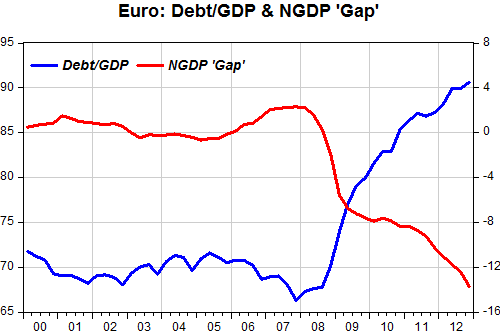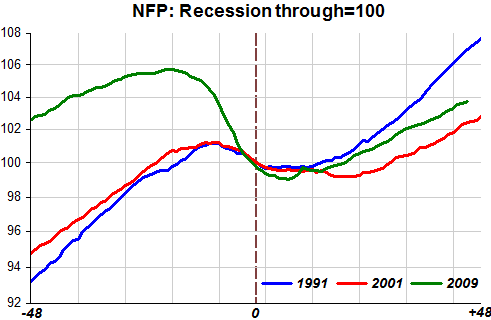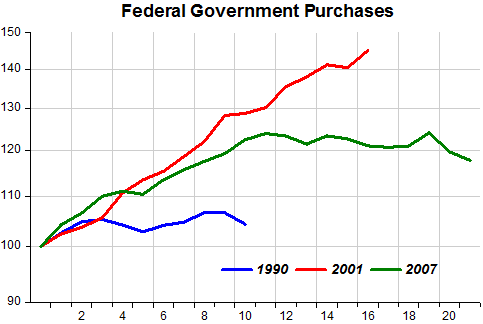In a recent blog post, “Krugman´s bias” I noted:
In a column last week I criticized Paul Krugman’s apparent belief that people who disagree with him — let’s say about half the country — are knaves, fools or sociopaths. I said his disdain was not just absurd but also politically counterproductive. Krugman responded to my “screed,” as he called it. His main point was that the disagreement over fiscal stimulus isn’t really a political disagreement at all. On one side, you have people who accept some simple, uncontested facts; and on the other, you have people too knavish, stupid or sociopathic to understand when those facts are patiently explained to them.
In a blog post today, David Henderson comments on Solow´s very unkind appraisal of Friedman. He writes:
One thing more re the “fruitless” debate. I first met Bob Solow when he came to the University of Western Ontario in about February of 1972, when I was taking a year of advanced undergrad economics there. Students were encouraged to visit him and I did so. We talked for about 30 to 40 minutes. I found him very likable. I felt so comfortable with him that I went a little too far. I asked him why Paul Samuelson was so nasty. Solow got a little defensive and said that Samuelson was his best friend. So here’s what his best friend was quoted saying about Friedman in a Time article on Friedman in the 1960s:
To keep the fish that they carried on long journeys lively and fresh, sea captains used to introduce an eel into the barrel. In the economics profession, Milton Friedman is that eel.
And that´s just one of many uncalled for sneers on Friedman by Samuelson. And there´s also, like in Krugman, a mean streak:
“Today we see how utterly mistaken was the Milton Friedman notion that a market system can regulate itself,” Samuelson said. ” … Everyone understands now, on the contrary, that there can be no solution without government. The Keynesian idea is once again accepted that fiscal policy and deficit spending has a major role to play in guiding a market economy. I wish Friedman were still alive so he could witness how his extremism led to the defeat of his own ideas.”
So Solow´s take on Friedman is also very much influenced by Samuelson´s antagonism to the man!
Krugman´s take on Friedman from 2007 was more subtle. At the beginning of his “Who was Milton Friedman?” he writes:
Keynesian theory initially prevailed because it did a far better job than classical orthodoxy of making sense of the world around us, and Friedman’s critique of Keynes became so influential largely because he correctly identified Keynesianism’s weak points. And just to be clear: although this essay argues that Friedman was wrong on some issues, and sometimes seemed less than honest with his readers, I regard him as a great economist and a great man.
A couple of paragraphs later Krugman is more blunt:
And it must be said that there were some serious questions about his intellectual honesty when he was speaking to the mass public.
But how can Krugman say this is an honest assessment?:
In effect, Japan in the Nineties offered a fresh opportunity to test the views of Friedman and Keynes regarding the effectiveness of monetary policy in depression conditions. And the results clearly supported Keynes’s pessimism rather than Friedman’s optimism.
From what I think I know, monetary policy remained very tight for most of this period while fiscal policy was extremely expansionary. From the outcome it is hard to say fiscal policy was in any way effective. From a monetarist standpoint it would be surprising if it were because monetary policy was simply neutralizing it!
At the end Krugman ‘opens up the field for himself’:
In the long run, great men are remembered for their strengths, not their weaknesses, and Milton Friedman was a very great man indeed—a man of intellectual courage who was one of the most important economic thinkers of all time, and possibly the most brilliant communicator of economic ideas to the general public that ever lived. But there’s a good case for arguing that Friedmanism, in the end, went too far, both as a doctrine and in its practical applications. When Friedman was beginning his career as a public intellectual, the times were ripe for a counterreformation against Keynesianism and all that went with it. But what the world needs now, I’d argue, is a counter-counterreformation.
Unfortunately for him, unlike Friedman he´s charmless!
Update: In his blog, David Henderson corrects me:
@Marcus Nunes,
I read your post on Samuelson and Solow and I think you missed the point about Samuelson’s “eel” comment. Samuelson was showing Friedman the ultimate respect: it was not a sneer. Later, it’s true, Samuelson sneered, but not, as far as I know, while Milton was alive.
But in my ‘defense’ I show this (referred to by DH in an essay he wrote with J. Hummel: Was money really easy under Greenspan):
Paul Samuelson, who would go on to win the 1970 Nobel Prize in economics the second time it was awarded, could proclaim in a 1969 Newsweek column that “there is no sight in the world more awful than that of an old-time economist, foam-flecked at the mouth and hell-bent to cure inflation by monetary discipline. God willing, we shan’t soon see his like again.”
Given the time (1969) and place (Newsweek Column opposite Friedman), who else could PS be reffering to?








